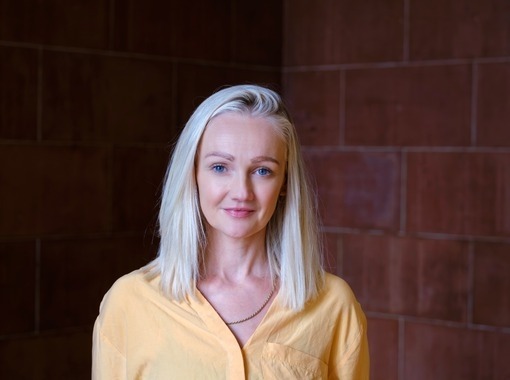Doctoral defense in education science: Eva Harðardóttir

Aðalbygging
Aula in the main building of the University of Iceland
Eva Harðardóttir defends her PhD thesis in Educational Sciences from the Faculty of Education and Diversity, University of Iceland.
The oral defence takes place Wednesday, November 1, at 1:00 pm in the Aula in the main building of the University of Iceland as well as in live stream.
Dissertation title: Becoming at home in a globalised world: Citizenship and inclusion in relation to cultural diversity within the context of Icelandic education.
Opponents: Dr. Morten Timmermann Korsgaard associate professor at Malmö University, Sweden, and Dr. Karen Pashby professor at Manchester Metropolitan University, England.
Main supervisor: Dr. Berglind Rós Magnúsdóttir professor at the School of Education, University of Iceland.
Co-supervisor: Dr. Ólafur Páll Jónsson professor at the School of Education, University of Iceland.
Expert in the Doctoral Committee was Dr. Halla Björk Hólmarsdóttir professor at Oslo Metropolitan University, Norway, and dr. Jo-Anne Dillabough professor at the University of Cambridge, England.
Dr Jón Ingvar Kjaran vice head of the faculty of education and diversity will conduct the ceremony.
All welcome.
About the project:
The doctoral project is based on three independent yet interrelated studies where the main objective was to understand how citizenship and inclusion are presented and perceived in relation to cultural diversity within the context of Icelandic education. The research was based on an analysis of policy documents, interviews with teachers as well as interviews with parents with immigrant and refugee background. It also included a theoretical analysis of the significance of global citizenship education (GCE) as an inclusive educational response to cultural diversity. The theoretical background of the project is based on critical and pedagogically oriented notions of GCE, as well as on selected concepts and ideas from Hannah Arendt about the role of education and the metaphor of visiting diverse perspectives as a way to engage with diversity.
Findings from the analysis of policy documents and the teachers’ narratives indicate overlapping and often contraditory discursive orientations of citizenship and inclusion. While teachers expressed empathy and support towards students with immigrant and refugee background, they also made use of excluding language by emphasising assimilative notions of being and knowing, including language proficiency, as a precondition for participation and inclusion. Such linear assumptions about the process of inclusion came across in contradiction to the experiences of the parents in the study who all, regardless of their background or ability to speak Icelandic, experienced internal exclusion within the space of Icelandic schools. That is where their perspectives and experiences were either invalidated or disregarded completely resulting in binary and unequal power positions between Icelandic parties on the one hand and immigrants and refugees on the other.
The doctoral project points out the importance of approaching citizenship and inclusion in a critical and decentered manner. It is encouraged that in order for "the young and new" citizens to be able to develop and share their unique perspectives within the space of Icelandic schools, dominant actors should cultivate a ‘visiting’ disposition in the spirit of Arendt. Someone who seeks to engage with the perspectives of immigrants and refugees with the aim to develop and revise a vision of what it means to be a citizen and to belong in a globalised world. This calls for support to teachers and teachers’ education in the spirit of critical pedagogy to engage with questions concerning the purpose of education as an open-ended process of becoming. Finally, it is suggested that future research continues to critically examine current contradictions and tensions within education policies and practices and how they might impact upon the inclusion and participation of diverse groups within Icelandic society.
About the doctoral candidate
Eva Harðardóttir holds a BA degree in pedagogy and education and is a certified upper-secondary teacher from the University of Iceland. She completed a joint master’s degree in educational studies with a focus on global policy and management from Deusto University in Spain and DPU in Denmark. Eva has been involved in research and teaching at the School of Education with breaks since 2008. She worked as an upper-secondary teacher at Keilir in the years 2010 to 2012 and at Menntaskólinn in Akureyri between 2018 and 2020. From 2013 to 2016, Eva worked for UNICEF in Malawi, where she supported the development and implementation of education policies and cross-sectoral projects on gender equality and education in cooperation with the Ministry of Education in Malawi. Eva has also worked as a module coordinator for the GRÓ Gender Equality Studies & Training Programme. Eva recently took over as president of the United Nations Association in Iceland, after having been a board member. Eva has been involved in developing a wide range of teaching materials and continuous development courses for educators, particularly related to the Sustainable Development Goals and global citizenship. Eva is the chair of the welfare and education committee in Hveragerðisbær, where she lives with her husband Lárus Jónsson, a basketball coach, and their two children, Hera Fönn and Alexander Hafsteinn.
Hér vantar að setja inn myndatexta í Uglu



